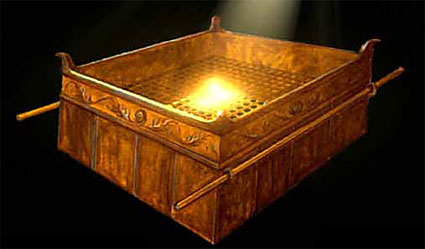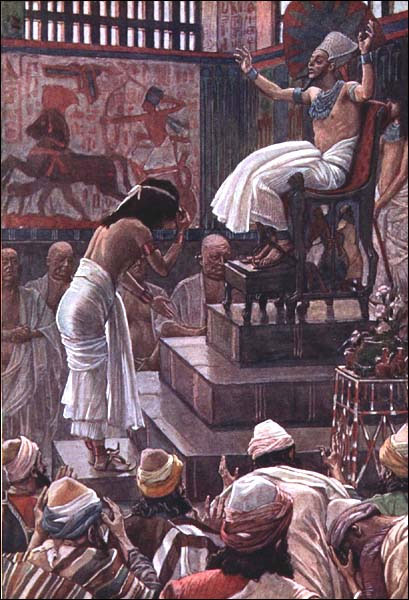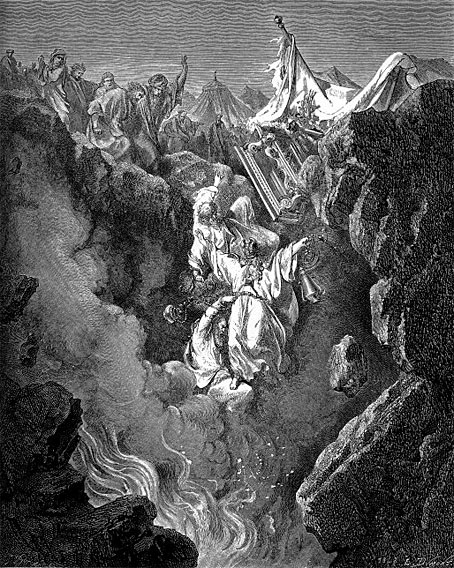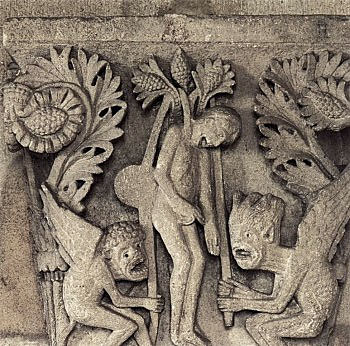Mar
15
2010

Okay, so The Earth is Flat after all. The Atlar’s being a symbol of the mediatorial Land, (a priesthood between the heavenly sky and Gentile sea) is the key to a fair amount of weird stuff in the Bible. It also means that a lot of what goes on in the Torah is the key to understanding some later enigmatic events.
The Bronze Altar had a grate inside it to support the sacrifice. The ashes would fall through the holes in the grate and the smoke would rise as a pleasing aroma to God.
In Numbers 16, concerning the rebellion of Korah and his sons, after the “censer” showdown between them and Aaron, the ground opened up and swallowed their tents, all their belongings and their families. However, fire consumed the wannabe priests who were offering the “false” incense. Even the rebellion was divided according to the priestly divisions within Israel. Ashes and smoke. [1]
Continue reading
Comments Off | tags: Aaron, Crucifixion, Korah, Liturgy, Revelation, Tabernacle, Zechariah | posted in Biblical Theology, The Last Days
Feb
9
2010
The astral bodies signified those who are glorified and exalted. While this is true of all the saints, it is also true of all human rulers as well. Revelation 1:20 says that the rulers of the church are like stars, and Jude 13 says that apostate teachers are “wandering stars.” —James B. Jordan, Through New Eyes, p. 55.

Jude’s epistle follows the themes of the Bible matrix. In Adam’s pattern, the first half (forming) was good, but he forfeited the glories of the last half (filling). Like God, he was to create with a faithful Covenant word. His failure made him a false prophet, one who cries “peace, peace” when Leviathan is at the gate.
Continue reading
Comments Off | tags: Balaam, Bible Matrix, Creation, Jude, Korah, Revelation, Tabernacle | posted in Biblical Theology, The Last Days
Jul
14
2009

or Theonomy in the Bible
“…instead of Moses and Aaron challenging the powers that be, we have Herodian preachers crying “Peace, peace” when there is no peace. Nathan is not qualified to confront David because Nathan himself has been sleeping around.”
In his post Christianity as Comprehensive Cultural Tribunal?, timsmartt questions the validity of philosophy’s self-appointed role as an unbiased cultural referee and wonders whether Christianity should take that role:
Continue reading
Comments Off | tags: Aaron, Abraham, Against Hyperpreterism, antichrist, Daniel, Esther, Herod, Jethro, John the Baptist, Korah, Melchizedek, Mordecai, Moses, Nathan, Philosophy, Postmillennialism, Solomon | posted in Biblical Theology, The Last Days, The Restoration Era
Jun
25
2009
 “Let no one deceive you by any means; for that Day will not come unless the falling away comes first, and the man of sin is revealed, the son of perdition.” (2 Thessalonians 2:3)
“Let no one deceive you by any means; for that Day will not come unless the falling away comes first, and the man of sin is revealed, the son of perdition.” (2 Thessalonians 2:3)
Non-dispensationalists are often accused of “Replacement Theology,” that is, the church replaced Israel. But we find in the Old Testament many examples of the same process prefiguring what the people of God went through in the first century. It is not replacement, but transformation.
Continue reading
Comments Off | tags: Aaron, AD70, Caleb, Ezra, James Jordan, Judaisers, Korah, Moses | posted in Biblical Theology, Quotes, The Last Days
Jun
23
2009
The serpent poured water like a river out of his mouth after the woman, to sweep her away with a flood. But the [Land] came to the help of the woman, and the [Land] opened its mouth and swallowed the river that the dragon had poured from his mouth. (Revelation 12:15-17)
 Satan mimicked the expanding gospel dominion with counterfeits at every step. Here, not only did he forge the water chariots of the true Temple (a false baptism), he would bring Noahic “rest” to the Land by destroying God’s mighty men. He would bring about his own twisted “new earth” by deluging the church with bogus teaching.
Satan mimicked the expanding gospel dominion with counterfeits at every step. Here, not only did he forge the water chariots of the true Temple (a false baptism), he would bring Noahic “rest” to the Land by destroying God’s mighty men. He would bring about his own twisted “new earth” by deluging the church with bogus teaching.
Continue reading
Comments Off | tags: AD70, Esau, Herod, Judas, Korah, Numbers 5, Satan, Scavengers, Temple | posted in Biblical Theology, The Last Days, Totus Christus






























